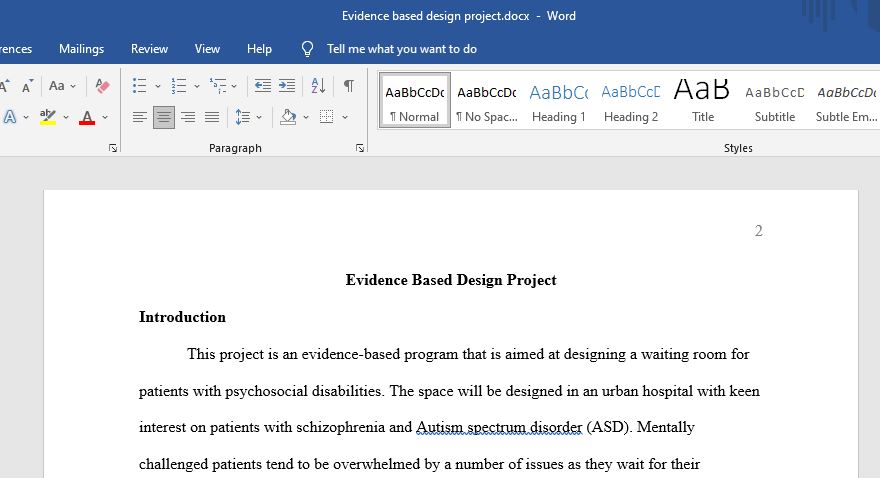Evidence Based Design Project
Project Details
Paper Topic
Design a waiting space for people with psychosocial disability in a large “one stop shop” medical
place (place where they have GP’s, dentists, allied health )
1500 words
Needs to be written as if to a lay person
Needs to be an evidenced based design project
1) Give a BRIEF introduction.
provide a brief overview of the project
provide information relevant to the background of the project (e.g., identify the
problem and the context in which the problem occurs). Working with people with
disability, the main thing I notice is that when I take some to a waiting room they are
overwhelmed by the noise and all the people in there. Those with schizophrenia get
anxious that people are looking at them or talking about them. Those with ASD can’t
cope with all the noise and business of the place.
2) Specify the space/program that you have chosen to design Waiting room in an urban
health centre – incorporating medical, dental and allied health facilities.
3) Identify the people that will use this space or are the target of your project. People with
psychosocial disability, particularly schizophrenia and ASD.
4) Identify the activities that will take place in this space or will form part of your project (a
concise overview). This will be waiting room for people who have to attend the medical
facility.
5) Discuss the theoretical perspective(s) used for designing your project. Be specific about
the theory and how it informs your project considerations. Integrate the design and theory.
For example, what theory made you choose the type of furnishings you opted to put
into the space? And more generally, what theory made you choose your approach to
the project you have designed?
6) Provide a clear description of your actual design and measurable outcomes
Use theories to back it up – some of the theories that can be used are
Place attachment theory (very relevant to an existing clinic being revamped) ART Goal-
framing theory Probabilistic functionalism (lens model) Theory of Affordances (Gibson
model) Theory of collative properties (Daniel berlyne) Theory of spatial cognition Social
design theory Overload theory SRT Westins theory of privacy Biophilia hypothesis
Placemaking
Answer preview:

word limit:1550
